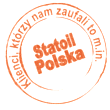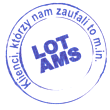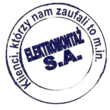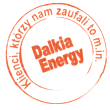Central heating stoker course. - where to start?
A considerable part of Polish houses is heated by central heating systems with boilers, which are operated by qualified central heating stokers. In this article, you will learn who this person is, what his/her duties are and what conditions must be met to work in this position.
What does a central heating boiler stoker do?
The person in this position is none other than the heating equipment operator who operates automatically fired boilers to generate steam that supplies heat or energy to an industrial plant, hospital or residential buildings.
This activity consists in the operation and permanent supervision of a boiler fuelled by gas, liquid or solid fuel and of the heating installation installed inside the boiler room. Depending on the place of work and the size of the boiler or heating plant, the person in this position may work individually or in teams. The stoker performs his/her duties strictly in accordance with the operating instructions for the given equipment, fittings and auxiliary equipment as well as with the operating instructions for the boiler plant.
From this brief description, we can conclude that this is not as simple a job as it may seem, and that in order to operate gas boilers and stoker boilers over 50 kW, it is necessary to obtain the appropriate energy licence.
 The tasks of a central heating boiler stoker.
The tasks of a central heating boiler stoker.
Under his care are the water supply regulators, mechanical grates, etc. Using a specially designed igniter, the stoker ignites the gas or oil burners, starts the process of crushing and delivering coal to the furnace. The operator of the heating equipment is responsible for monitoring pressure, temperature and air draft gauges, the Burner sets the optimum boiler operating parameters, monitors the technical condition of the auxiliary equipment, in addition, his duties include
- transport of the fuel mass to the bunkers;
- supervising and operating the equipment feeding the central heating furnace or boiler and removing slag and ash from under the grate;
- adequate and economical use of fuel;
- maintaining order in the boiler rooms, including the fuel storage area;
- furnace maintenance;
- securing manholes and doors to the fuel store;
- the application of fire protection regulations;
- compliance with regulations relating to the protection of the environment.
How do I become authorised?
Persons wishing to obtain a licence and start working with equipment, installations and networks must attend a training course for central heating boiler burners and obtain a licence in the group G2. Although it sounds complicated, we will explain all the terms below.
Who can take a central heating stoker course?
The candidate for central heating boiler operator should be at least 18 years of age and in good health, which is confirmed by a medical examination. Physical strength will be an asset. The necessary knowledge for this profession can be acquired through a qualification course, it is also possible to acquire skills on the job through apprenticeship by older and more experienced colleagues.
If the furnace or boiler you are operating has a power of more than 50 kW, you will need a thermal licence to operate it. These must be obtained by people who wish to professionally operate or supervise equipment and networks that produce, process, transmit and consume heat.
What are entitlements?
T Qualification is granted by completing a training course and passing an examination before an examination board.
G2 thermal allowance
The operation and supervision of equipment and energy networks that generate, process, transmit and consume heat require a G2 thermal qualification. The devices which require this qualification include
- steam and water boilers fired by solid, liquid and gaseous fuels, including equipment
auxiliaries,
- steam and water turbines of more than 50 kW together with auxiliary machinery,
- heating networks and installations including ancillary equipment,
- pumps, fans, extractors, blowers with a power greater than 50 kW,
- ventilation, air-conditioning and refrigeration equipment,
- fuel storage, unloading and storage facilities,
- rescue and fire-fighting authorities and border protection,
- military technology equipment and armaments,
- compressors and compressed air and industrial gas systems.
Where to enrol on a course?
If you are interested in becoming a central heating cooker and boiler burner, you must obtain a qualification certificate entitling you to operate equipment, installations and networks in the position of an operator, and therefore enrol on an appropriate course for central heating cooker burners, which is run by, among others:
- vocational and continuing training centres,
- employers who organise a specialised course in their plant for the needs of the boiler room,
- training institutions, such as the Operator Training Centre (OSO),
- manufacturers of boilers, valves and auxiliary equipment.
Topics covered on the course
During the training you will acquire the necessary knowledge and skills to work with boilers and furnaces. During the training course, participants learn about the basics of thermal engineering, the specifics of water and steam boilers fired by liquid fuels, technical requirements for boiler rooms, specifics relating to technical conditions for the construction of gas and oil-fired boiler rooms, control and measuring equipment, safety devices for gas and oil-fired boilers, etc.
During the course on operating boilers for solid, liquid and gaseous fuels you will also gain knowledge about:
- construction, types, operation and technical conditions of equipment
- construction of central heating boilers,
- operation and maintenance of boilers,
- health and safety at work,
- fire protection,
- providing first aid,
- procedures in the event of failure, fire, danger to life and health, danger to the environment and other hazards connected with the operation of central heating equipment, installations and networks.
Additional skills
A central heating boiler burner should be physically fit. As for his/her personality traits, self-control, independence and responsibility will be the most valuable in this profession.
Due to the need to use many auxiliary machines and tools, technical skills will be an asset. Among the tools mentioned we can mention:
- hydraulic tools (hydraulic spanners, threading machines),
- locksmith tools (hammers, pliers, spanners),
- water level gauges,
- vapour pressure meter/tester,
- meters/testers for electromagnetic fields generated by electric motors,
- electrical meters,
- safety valve test kit,
- water testing kit,
- testers for checking the tightness of gas appliances and connections.
Period of validity of the qualifications obtained
Successful completion of the exam obliges the commission to issue a certificate, this applies to groups E (operation) and D (supervision). Remember that you have to renew your certification as a central heating burner every 5 years.
Possible places of employment
A boiler stoker will find work in production and service companies that use steam for production, for example in power and industrial plants, hospitals, the plastics industry, shipping or steam laundries.
Opportunities for career development and advancement
Employers, when hiring a central heating boiler burner, provide training for novice workers on their premises. A thermal equipment operator can:
- carry out the tasks assigned to them independently,
- gain experience by working under the supervision of a supervisor,
- work as a supervisor overseeing the work of the team,
- improve their skills by attending courses organised by boiler manufacturers and other professional organisations.
Risks involved
The boiler stoker is exposed to several hazards which include:
- risk of explosion and burns;
- fire and carbon monoxide poisoning;
- skin lesions as a result of exposure to various chemicals;
- fatigue and general malaise resulting from spending several hours in a noisy and humid microclimate.






































